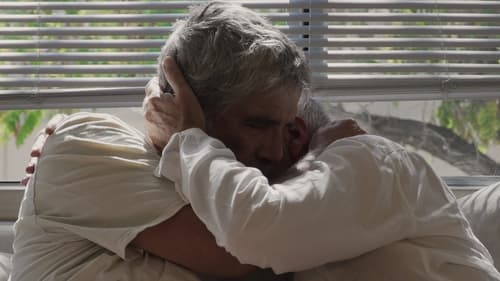
Editor
Road trips through Los Angeles, famous verses in the Poetry Lounge and love in times of the pandemic: Rendezvous with an old flame, fourty years later. After Jaurès (2012), Vincent Dieutre presents another tender autofictional piece in the Forum.

Editor
Late summer, a small lake, teenage rascals. Mia, 11 and too wise for her age, asks Hugo, 15 and blasé, to tell her about Chaïnes – a girl he spent evenings with at the lake, trying to seduce her. He felt the fear of declaring his love and the torment provoked by the exuberant but secretive Chaïnes, who never shows her emotions. Mia and her siblings surround them, like a choir. A slow, dark, documentary in which time doesn't seem to exist.

Writer
Late summer, a small lake, teenage rascals. Mia, 11 and too wise for her age, asks Hugo, 15 and blasé, to tell her about Chaïnes – a girl he spent evenings with at the lake, trying to seduce her. He felt the fear of declaring his love and the torment provoked by the exuberant but secretive Chaïnes, who never shows her emotions. Mia and her siblings surround them, like a choir. A slow, dark, documentary in which time doesn't seem to exist.

Editor
Its light, its smoky bars, its vacant land: the characters that we meet here treasure different aspects of Berlin. Vincent Dieutre puts faces and voices on some of the many artists who have settled there since the collapse of the Wall. Questioning each one about their arrival and possible departure, he depicts how Berlin has become part of the personal stories that have, in turn, been infused with a city’s history. What each artist recounts with their own words and sensitivity is also what the city has taught them – the vocabulary of the sentiments in German, the strength to live in the cold or in precarious conditions. Like a playful wink to the tourist guide format, the filmmaker travels from district to district.

Editor

Editor
A waterway, at night. A beach, children. During the day, people strolling along the river bank. A poem in three parts, inspired by the myth of Orpheus and the filmmaker’s childhood landscapes on the Franco- Swiss border.

Editor

Editor
On a feverish night, a child senses a ghost, a woman who has come from the sea, coming home after a long political exile. A silent tale, a bodyless voice and visions mingle in the dark of the night and the fever. The child of the present and the political refugee coming home are now one, traveling together to a strange building, appearing to be her lost memories. Forgotten political fights appear and disappear with the fever's hallucinations. Then, new fights, the Arab spring of Morocco, flood the past.

Editor
A studio. A man and a woman. Moving images on the screen, which he comments on, spurred on by her questions. All the footage was shot from the window of a flat: views of the street, the metro line running above it, the canal, into the windows of the buildings opposite. The flat belongs to the man’s lover, the man is a guest, spending his nights there but never his days. By the canal, young men from Afghanistan set up makeshift shelters as the man looks on, developing increasing sympathy for them. The seasons change, winter, spring, summer.

Editor
Shot on super 8, the film appears like a journey, a dream along the Narmada river in India, between myths of Progress and myths of the river. "Dams are the temples of modern India", claimed Nehru after the country's independance. Soon, one of the largest complex of dams ever conceived will be completed on the Narmada. A social struggle is getting organized. We travel on the river until the ocean, on our way to meet inhabitants, beliefs, and convictions that cohabit and are brought into conflict as this valley undergoes major transformations.

Editor
A woman sitting in front of a screen: we do not know if it is day or night outside. In this place, the light of the screens dominates that of time. The inner voice of this woman recounts a solitary and reclusive life and her confusion in front of an old black and white photograph that she has just e








